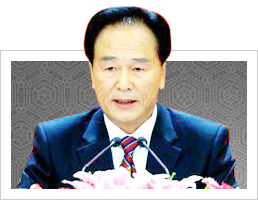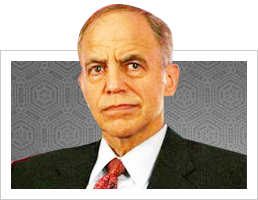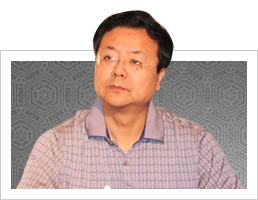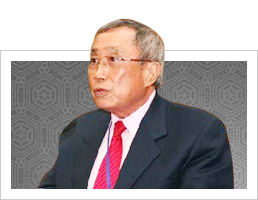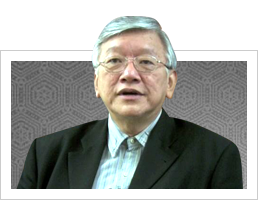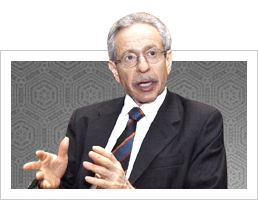The year of Chinese Dream
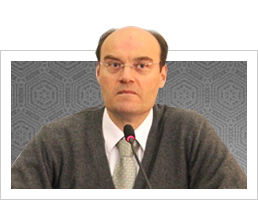
The author is director of the Academia Sinica Europaea at China Europe International Business School, Shanghai, Beijing and Accra, and founder of the Euro-China Forum.
President Xi Jinping has exercised the greatest influence on the world stage in 2013 with his visionary leadership
In October, the shutdown of the US federal government forced President Barack Obama to cancel a series of trips abroad. In his absence, at the Asia-Pacific Economic Cooperation summit in Bali, Chinese President Xi Jinping was de facto the most powerful man in the room, the US "pivot to Asia" ironically reduced to a mere rhetorical posture.
It is indeed Xi who most influenced the year 2013. On the global chessboard, the constant movement in China contrasted with the lack of leadership in the European Union and political paralysis in the United States. The West lost the advantage of the initiative; it simply reacted to China's new moves and rapid actions.
Within 12 months, China's top leader introduced a powerful narrative to express the Chinese zeitgeist, the Chinese Dream. He managed to reconnect with Deng Xiaoping's spirit of reform and, from Sunnylands to Bali, he occupied, without departing from his natural modesty, the center of the world's political stage.
Xi's Chinese Dream is a dynamic synthesis that can be presented as a triptych of the interrelated visions of "modern China", "global China" and "civilizational China".
"Modern China" summarizes the achievements since the republic of Sun Yat-sen and the quest for even greater socio-economic advancement. The People's Republic of China brought hundreds of millions of people out of poverty, liberated Chinese women and extended life expectancy (41 years in 1950 to 76 now), while Deng's reform and opening-up remain the catalyst for improvement across Chinese society.
At the Third Plenum of the 18th Central Committee of the Communist Party of China in November, in a direct reference to the historic 1978 Third Plenum of 11th CPC Central Committee, Xi reaffirmed Deng's spirit of reform with the notion of "comprehensive deepening of reforms".
As stated in the plenum's declaration, Xi is taking China on a new course: "In the face of new circumstances and new tasks reform must be comprehensively deepened from a new historic starting point." The choice to clearly allow market forces to play a decisive role in resource allocation immediately won the support of enlightened reformists.
Connotations of Chinese Dream
Inspired by the Chinese Dream, more and more people have begun to chase their own dreams, including dreams to receive better education, start businesses, purchase homes and get rich. People firmly believe that as long as they work hard, their dreams would come true. [more]
Chinese dream and China's governance
A great deal will depend on how Xi Jinping will actually implement the core features of the program he has laid out and how he will seek to create incentives and constituencies to support his programmatic goals.In sum, President Xi has now made very clear where he stands and where he wants the country to go under his leadership, and he has achieved wide-ranging endorsement of this overall program. [more]
Chinese Dream includes strong PLA
The PLA as a pillar of State security follows the trend of the times and follows a principle that is different from colonial aggression and expansion. And China firmly believes in the principles of peace, cooperation and development of military ties with other countries. [more]
The Chinese dream and peaceful development
The most difficult issue in the region now is the the relationship between China and Japan regarding overlapping claims on the Diaoyu, or Senkaku, islands group. The problem is residual from World War II, and the historical part of the issues is complicated. That is why Japan PM Abe’s revisionist statement on World War II and its impact does not help. [more]
The year of Chinese Dream
Distinct from the American Dream, the Chinese Dream cannot be a narrative of pure newness. It is the imagining of a better future with the memory of 4,000 years of history, a movement of renaissance expressed in the vision of "civilizational China". [more]
Defeat challenges, realize Chinese Dream
High economic growth in recent decades may have made China more confident of realizing the Chinese Dream, but the country's new leaders face serious challenges that could hamper their efforts to realize the goal.First and foremost is the need to fight widespread corruption. Making this his main priority, President Xi warned that corruption could lead to "the collapse of the Party and the downfall of the State". [more]
World dialogue on the Chinese Dream
The “Personal Chinese Dream” focuses on the well-being of individual Chinese citizens and thus modifies traditional notions of the primacy of the collective over the individual. The dream of the Personal is balanced with the dream of the National. In fact, the fulfillment of The Personal Chinese Dream constitutes a good part of what it means to fulfill the National Chinese Dream. [more]
Making a nation's dream come true
Promoting Chinese concepts in the rest of the world is not very difficult - stop translating key Chinese terminologies (at best, give the appropriate or closest meaning and continue with the Chinese terminology). If kung fu, wushu, rujia, shengren, junzi can be understood and accepted by the outside, why not zhongguo meng? Once you translate a Chinese term you give away the definition of thought. [more]

